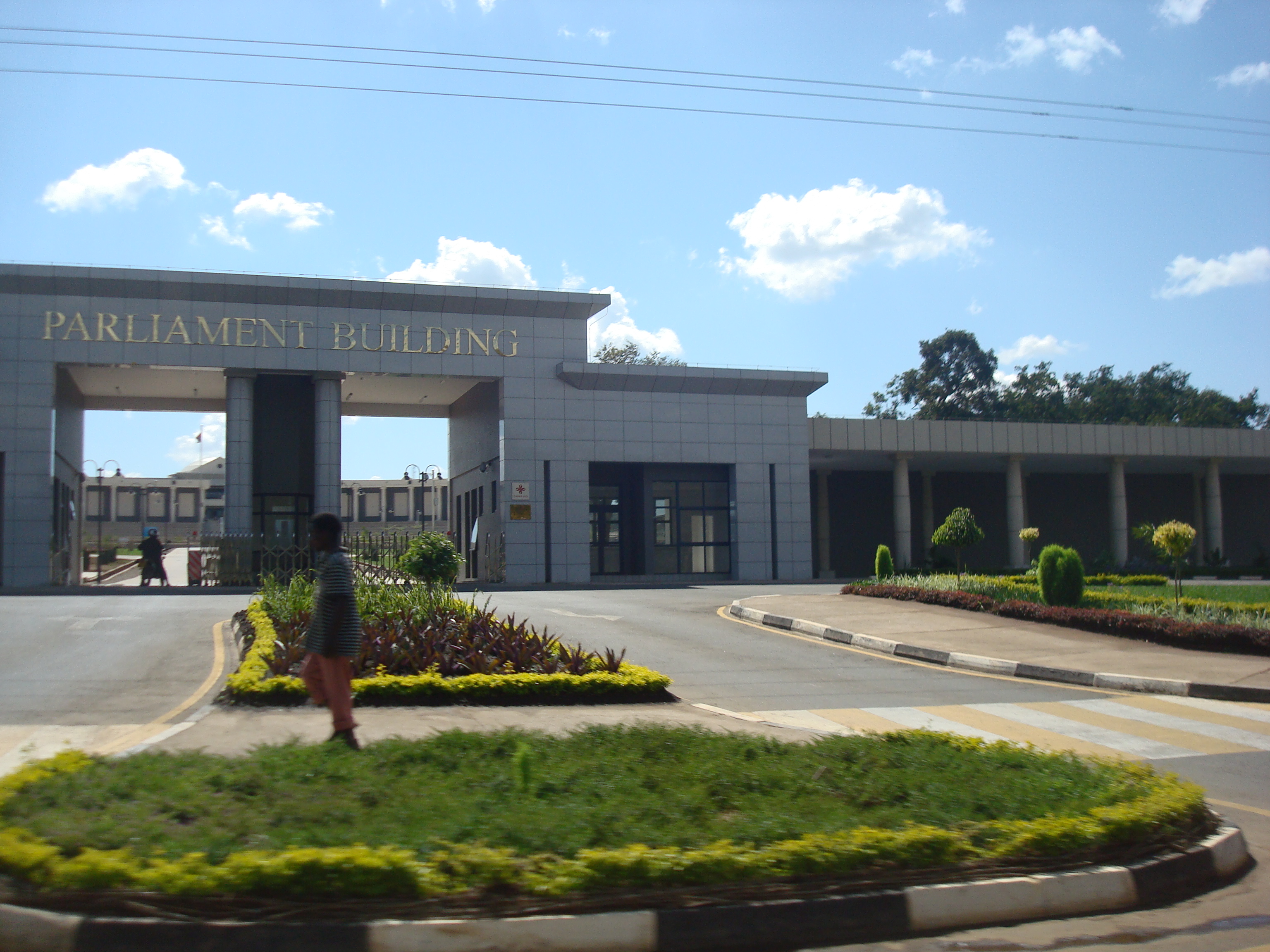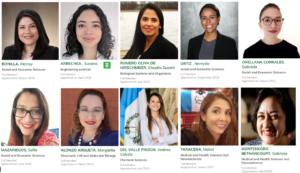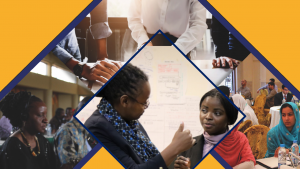
Evidence Spotlight: Overcoming challenges to using evidence in the Parliament of Malawi
Photo: Parliament of Malawi
——————————————————————————————————————————-
 In this Evidence Spotlight INASP’s Emily Hayter interviews Kondwani Chikafa (image, right), Senior Research Officer in the Research Section of the Parliament of Malawi.
In this Evidence Spotlight INASP’s Emily Hayter interviews Kondwani Chikafa (image, right), Senior Research Officer in the Research Section of the Parliament of Malawi.
Parliament of Malawi’s Research Section is comprised of three staff. Its key function is to support decision making in parliament through research and analysis for MPs, who are its main clients.
How is research information currently used in the Parliament of Malawi?
Research information is used in three ways:
- In the Plenary: Members of Parliament (MPs) request information on issues that are on the floor of the House. This information is requested by Backbench MPs in the National Assembly and given to them before the House opens.
- In the Parliamentary Committees: Prior to Committee Meetings, the Research Section can be asked to prepare briefing papers on specific issues on the agenda to help members make informed decisions.
- Delegations: The Parliament of Malawi occasionally sends delegations to international meetings and conferences. The Research Section prepares background papers based on relevant issues to help delegations effectively participate and contribute to debates and discussions.
How does the process of researching, analysing and collating information for the Parliament of Malawi work?
The formal way of requesting for information is to fill in a Research Information Request Form and then meet with an officer from the Research Section to discuss the objectives of the request. Once both parties agree on the information requested, the officer goes ahead to work on the request, which usually has a timeframe of at least two weeks. Some requests, often for very important information, still come to us informally and with the need to provide the information in under two weeks.
The Section makes use of research evidence from various sources such as the Parliament Library, and internet sources. We make sure the research information presented includes balanced opinions to make sure that the contributions of the MPs are not marred with biasness. Once the research has been done, the Section creates products for the MPs, including:
- Factsheets: Our factsheet series covers 10 topics so far and there are many more parliamentary topics that we hope to tackle in the future.
- Background Papers: These are produced mainly for delegations attending meetings, conferences and workshops, both locally and internationally.
- Briefings: These are research papers that are produced for Committees to inform Members about specific issues under consideration.
What are the main challenges to enhance the use of evidence in policymaking?
Access up-to-date resources
We mostly find our information through desk research using the Parliament’s library books and the internet. However, most of our Parliament Library resources are out of date. Most up-to-date journal articles are from online sources that require a subscription fee, which Parliament cannot do due to financial constraints. So it’s a challenge to provide research information that is based on new trends and studies when the Section has only a few up-to-date text books and internet search engines, such as Google, as reliable sources of research evidence.
Awareness of the Research Section in Parliament
Many MPs don’t know about the Research Section. I’ve given presentations to Committee Meetings about the Section and the services we offer, which worked well, though we didn’t reach all MPs. We will be devising other awareness-raising mechanisms such as flyers and a brochure on what we offer to distribute to all MPs. However, the risk is that increased awareness will generate enormous demand for research work which may challenge the few research officers.
Enough research personnel with the capacity to meet the demand
With only three officers, the Research Section has struggled with capacity and has not been able to venture into other tasks, such as field research and raising awareness of information already available to MPs in the Section’s completed factsheets and briefing papers. One temporary solution could be to source external funding for additional personnel such as interns from universities. However, in the long term more permanent research staff is the only solution.
Research is a professional and specialised area of work and requires regular capacity development. Parliament could engage other capacity development players to sharpen and refresh the research skills of the Research Service personnel.
What can be done to overcome these challenges?
There is desire in Malawi to use research information in policy making. It is exciting that there is a pool of information and local research being generated to inform the decision making process of Parliament, including information from research institutions, research centres at universities and academics. There is need for increased investment from leaders in Parliament and research capacity development partners to strengthen the Research Services team and resources, but we also need to engage research institutions to see if we can use the research information and knowledge they produce. Most of all, as the Parliamentary Research Section, we will be striving to be more proactive and on top of issues that can enrich Parliamentary debates and decisions.

 Previous Post
Previous Post Next Post
Next Post



Thank you for sharing your experience as a Senior Research Officer in the Research Section of the Parliament of Malawi above, Kondwani Chikafa.
I notice that one of the main challenges you mention to enhance the use of evidence in policymaking is access to up-to-date resources. In the Research Access and Higher Education team at INASP we work with library consortia in developing countries to facilitate access to research information for researchers, academics, students and policy makers in many countries across Africa, South Asia and Latin America. INASP negotiates for deeply discounted, sometimes free, access to online research literature across a variety of disciplines for eligible institutions (this includes parliamentary libraries) in the countries we work in.
In Malawi we work with the Malawi Library and Information Consortium (MALICO).
Access to the resources negotiated for by INASP and facilitated in-country by the consortium is managed by your library or institution which:
– Pays for access where relevant – often by joining INASP’s in country partner consortium
– Registers your institution for access on the INASP registration system
If you want to get in touch with MALICO to explore the possibilities of your parliament library joining the consortium and which resources you would then have access to, you can find contact details for MALICO on our Malawi contacts page on the INASP website: http://www.inasp.info/en/network/country/MW/key-contacts/.
You might also find our guide for policy makers for identifying and using online research literature useful. The guide can be opened and downloaded from this site: http://www.inasp.info/en/training-resources/e-resources/access-support/help-access-use/